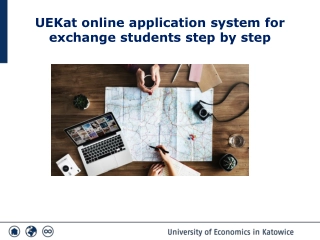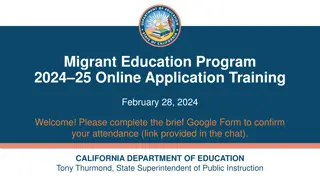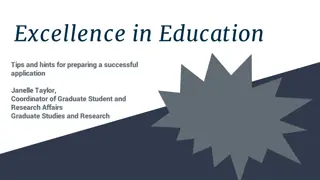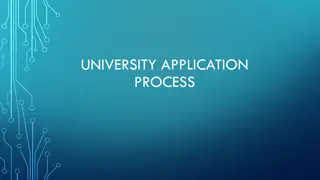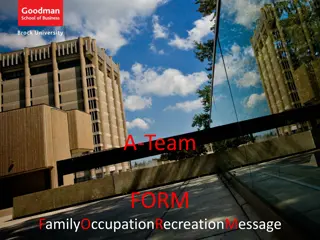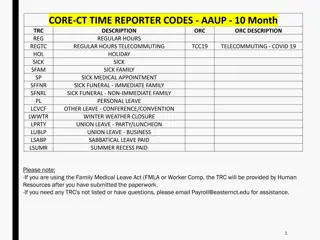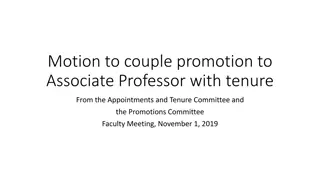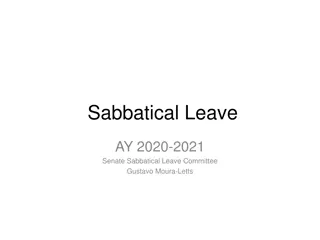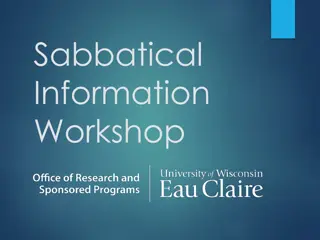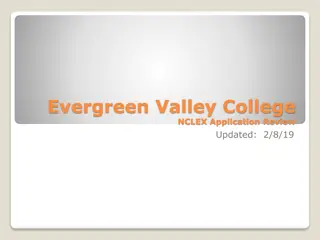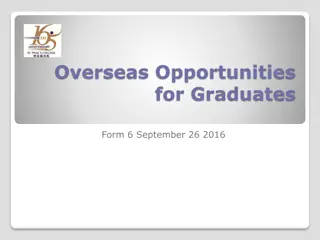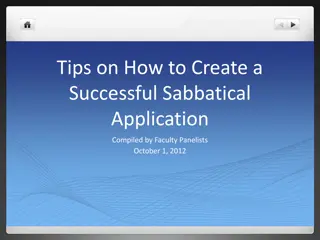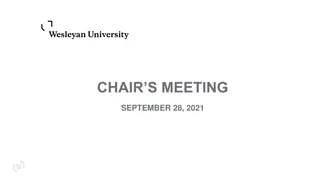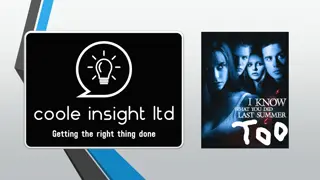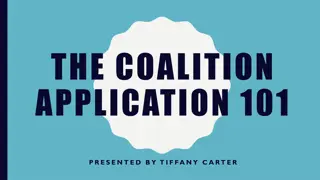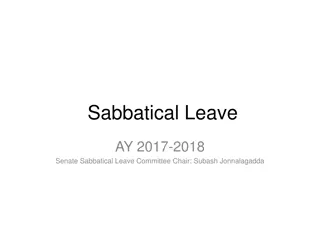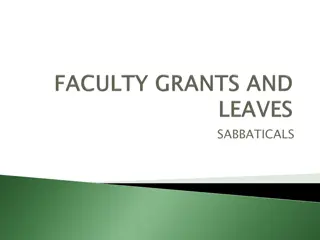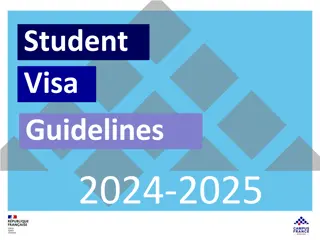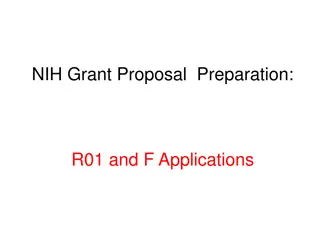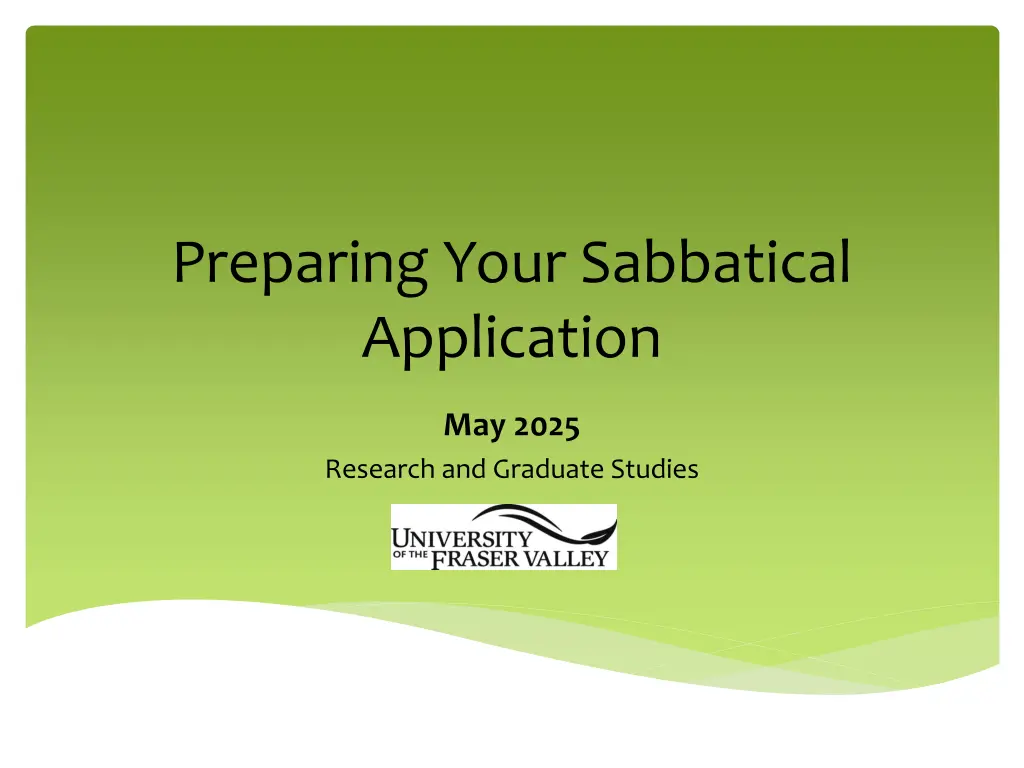
Crafting a Strong Sabbatical Application for Research and Graduate Studies in May 2025
"Learn about the key components of a robust sabbatical application for May 2025, including writing a project summary, details of the project, and clarity of description. Understand the various sabbatical streams available and common mistakes to avoid in your application."
Download Presentation

Please find below an Image/Link to download the presentation.
The content on the website is provided AS IS for your information and personal use only. It may not be sold, licensed, or shared on other websites without obtaining consent from the author. If you encounter any issues during the download, it is possible that the publisher has removed the file from their server.
You are allowed to download the files provided on this website for personal or commercial use, subject to the condition that they are used lawfully. All files are the property of their respective owners.
The content on the website is provided AS IS for your information and personal use only. It may not be sold, licensed, or shared on other websites without obtaining consent from the author.
E N D
Presentation Transcript
Preparing Your Sabbatical Application May 2025 Research and Graduate Studies
Agenda Brief introductions Components of a strong sabbatical application Writing the project summary: purpose and goal statement Details of the project: objectives, design, schedule, outputs, dissemination, submission of results
Sabbatical Streams 1. 2. Scholarly Activity Project 3. Teaching and Learning Project 4. Curriculum Development Project 5. Course or Training Program 6. Completion of Requirements for New Credentials Program 7. Indigenous training/teachings for Indigenous faculty: a project, program or activity in Indigenous culture, s iwes, or Indigenous ways of knowing. 8. Indigenous training/teachings for non-indigenous faculty: a project, program or activity learning from Indigenous peoples about culture, s iwes or Indigenous ways of knowing. Research Project
Components of strong sabbatical application Clarity of description the language should be clearly written without too much jargon , as the application will be adjudicated by a cross disciplinary committee Clarity of commitment -- applications must be clear on how much work the project or activity actually requires Clarity of impact -- the research or scholarship contributes to the applicant's field or discipline Clarity of feasibility -- the activity or project must be doable in the timeframe
Where things go wrong. Unclear purpose, goals, objectives, methods and outcomes. Unclear fit into the various types of sabbatical eligible streams (research, scholarly activity, teaching & learning, curriculum development, completion of requirements for new credentials) One project only the project may have different components but the sabbatical is for one project.
Where things go wrong Activities/ timeline do not suit the time requested for sabbatical (one year). Lack of detail. Lack of specific objectives and outputs (of a one year sabbatical) Assumptions that the reviewer of the application knows what you are talking about.
Write your purpose and goal statement The project summary is approximately 250 words. This is a clear statement of purpose, relevance and value of the project. Summary should include: Why is this important? How does it advance knowledge? Provide a rationale.
Tips and Advice Start soon (rather than later) do your prep work Think about the emphasis of your project Articulate /share with others this helps with clarity Read the Questions on the application and answer the questions.
Writing objectives: Defining the objectives of your sabbatical project is one of the most important components to articulate (after purpose and goals). Objectives help you determine factors and approach that you will use to reach your goals. Objectives shape the questions you ask, and guide your analysis and reports. Objectives often use verbs such as: explore, examine, define, understand, interpret, synthesize.
Writing objectives: Identify some of your objectives (as they stem from your purpose and goals) Objectives are steps on the staircase or subgoals Think about wording and clarity
Design, schedule, results, dissemination, outcomes Identify your design and work plan Provide a timeline: what are you doing from month to month, or every two months? This helps you determine if your project is manageable. How will the results be reported and disseminated? Identify your tangible outputs.
Tips and Advice Think about connections (to the field, discipline, your program, to the community, the university). Be clear about outputs, outcomes and dissemination (papers, books, reports, conference presentations, workshops, faculty presentations).
Submitting your application Make sure you have all accompanying documents to your sabbatical application. Review the handbook. Deadlines begin in September to your department/School and then to your Dean/AVP/VP. You will be given time to revise your application, particularly based on feedback from your Dean. Absolute deadline: November 15. Late applications not accepted. Incomplete applications not accepted.
Application Deadlines September Department feedback September 30th- Department Head/Director feedback October 16th Dean s review and feedback November 15th Submission of finalized application November 30th Dean s electronic confirmation
Review of applications The review of applications is completed by a faculty subcommittee. Review process occurs in January-February. You may be asked to clarify or expand aspects or your application.
After approval What if something changes? There is a form. You must contact your Dean (AVP or VP) and the AVP RGS, if your activities change. This is because you will be approved for a specific set of activities and outcomes. Changes to your plan must be consistent with the time frame and expected outcomes. Your Dean (AVP or VP) must approve the changes. HR would also be advised at the time.
After sabbatical You will receive a template to submit a Sabbatical Report for your work. This is important to note so that your report is aligned with what you proposed to do. Your Sabbatical report is due October 31 and is reviewed by the Dean and the AVP. There is usually follow-up if the sabbatical outcomes are incomplete.
Questions: Who to talk to? Research and Graduate Studies: garry.fehr@ufv.ca ; jasleen.rakkar@ufv.ca Research Mentors: Olav Lian, Lenore Newman, Scott Sheffield, Michael Gaetz. http://www.ufv.ca/research/faculty/r2r-research- mentors/ Your colleagues who have applied in the past.


